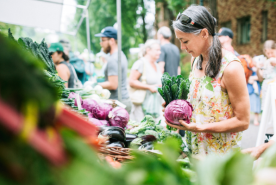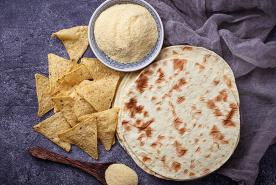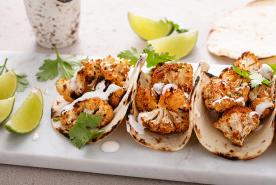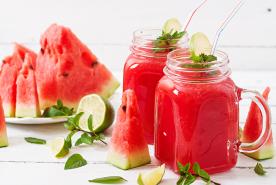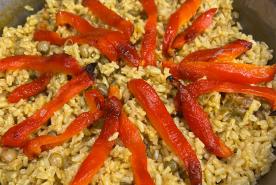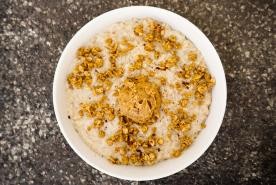Stock your plant-based pantry with whole grains, legumes, nuts, seeds, soy products, and healthy oils. Choose unsalted items and avoid high potassium substitutes.
Need help starting a plant-based pantry? Before you begin, talk to your health professional or a registered dietitian. Make sure a plant-based diet is right for you. Why is this important? Kidney patients have special dietary needs. What you can and cannot eat depends on how much kidney function you have, and whether you have other health problems like diabetes, high blood pressure, or heart disease. There is no “one-size-fits-all” plant-based diet for everyone with kidney disease.
Remember, not all plant-based foods listed here are right for all kidney patients!
High Protein Meat Substitutes
Protein is an important nutrient that helps build muscle, repair tissue, and fight infection. Everyone needs protein. Most people get it from meat, fish, poultry, and dairy. Your plant-based pantry will need some meat-substitutes:
- Eggs, milk, cheese (unless you are following a strict vegan diet that does not allow any animal-based products)
- Soy products. The soybean is a species of legume native to East Asia and a great source of protein. Studies show that soy may be beneficial for people with early kidney disease – it may help protect the heart, lower “bad” cholesterol, and help control phosphorus. Soy products include:
- Tofu (also known as bean curd). Made from mashed soybeans, tofu is known as “the mother of meat-substitutes” because it is protein-rich.
- Soy milk
- Soy cheese
- Soy yogurt
- Tempeh (a kind of soy paste)
- Veggie burgers. You can make veggie burgers from many plant-based products, including beans, bulgur, tofu, beets. Your options are endless. Make them tasty by adding nuts, chilies, garlic, fresh herbs or spices, cooked grains, salsa or citrus to your patties.
- Legumes and beans (see below)
Legumes and Beans
A “must have” for every plant-based pantry, legumes and beans help give you the protein you would otherwise get from meat. They are also high in fiber, rich in complex carbohydrates, and low in fat. Throw them in salads, soups, tacos, stir fries, or casseroles. If you are buying canned, jarred, or packaged beans, look for ones without added salt and other food additives – or cook dried beans from scratch. Some varieties are: black beans, black-eyed peas, chickpeas, lentils (all kinds), split peas, pink beans, pinto beans, red or kidney beans.
Grains (Rice, Breads, Cereals)
Choose healthy, whole grains rather than refined (white) grains when buying bread, rice, cereals, pastas, and flour. Whole grains have many nutrients and are an important part of a plant-based diet. (Refined grains, on the other hand, do not give you many nutrients). Some healthy, whole grains are: barley, brown rice, buckwheat, bulgur (cracked wheat), couscous, millet, oatmeal, quinoa, and wild rice.
Pastas and Noodles
Look for pastas and noodles made from whole grain flour, including angel hair, spaghetti, ziti, penne, fettuccine, and linguine. Don’t forget Asian noodles, such as udon, soba, rice noodles, and bean-thread noodles. Most well-stocked supermarkets and natural food stores stock Asian noodles nowadays.
Unsalted Nuts and Seeds
Nuts and seeds add flavor to salads, noodle dishes, dips, and baked goods. They also make great snacks. They give you lots of protein, fiber, and omega-3 fatty acids. There are many different types, including almonds, cashews, walnuts, peanuts (and peanut butter), pepitas, hemp seeds, chia seeds, flax seeds, sunflower seeds, pumpkin seeds, and sesame seeds.
Spices and Dried Herbs
Using spices and herbs can help make meals flavorful and fun. According to Mark Bittman’s How to Cook Everything Vegetarian: “A starter kit might include dried thyme and tarragon, paprika, a variety of ground chilies (cayenne, red chili flakes, mild ground chilies), ground cinnamon, cumin, and fennel seeds." However, do not buy salt substitutes. They are high in potassium. (Most people with late stage kidney disease must limit potassium.)
Oils
Healthy oils are used for cooking, salad dressings, soups, stir-fry, and more.
- Extra virgin olive oil. Adds flavor to many dishes. Studies show that extra-virgin olive oil has special health benefits for kidney patients, including anti-inflammatory and anti-oxidant effects.
- Sesame oil. Adds toasty flavor and is great in stir-fries and other dishes.
- Safflower, sunflower, or other light-flavored oil. Use them for high-heat cooking and baking.
Condiments
The right condiment can help add zest to everything from salad dressings to soups. In addition to staples like lemon juice, black pepper, and salt-free seasoning blends, try adding:
- Tahini. This is a paste or sauce made from ground sesame seeds. It is often used in middle-eastern dishes, including hummus and baba ganoush.
- Vinegars. (Get several different kinds, such as white and rice vinegar, balsamic, sherry vinegar, white and red wine vinegars.)
- Hot sauce. Hot sauce is made from chili peppers and other ingredients. You can find flavorful kinds from all over the world, including North America, East Asia, South America, West Indies, Africa, Middle-East, and Europe.
Want an easy way to start eating less meat? Go Meatless Monday every week, and get regular tips and recipes by following #MeatlessMonday and learning more at MeatlessMonday.com.





